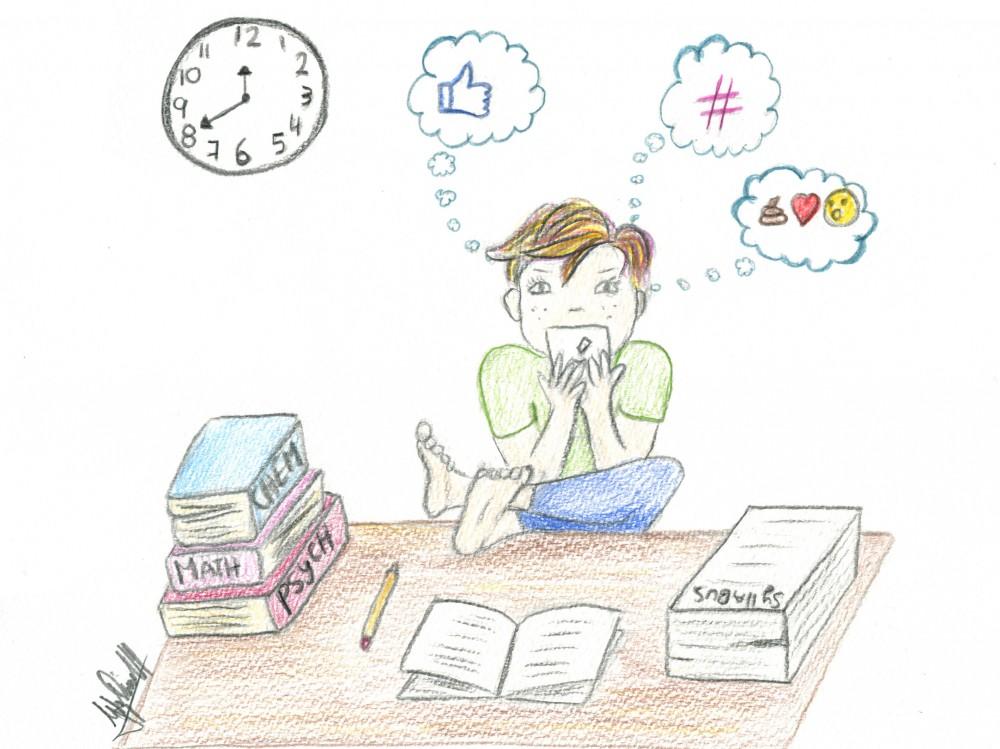Smartphones; a prime example of technology’s good and dark sides.

In the twenty-first century, there is no truer illustration of the double-edged sword than technology.
On the one hand, it provides us with connection, convenience, and the best of the world’s knowledge and entertainment at our fingertips.
On the other, it is quickly becoming a replacement for real world interaction.
It’s no wonder technology addiction like food and porn addiction is on the rise.
Similar to hyper-processed foods, which can hijack your hunger, smartphone apps are designed by developers to have the same effect on your attention.
These apps are addicting in part because they lead to a stimulation of the neurotransmitter dopamine, which is involved in feelings of reward.
Though posting on Instagram might not seem like doing drugs, that’s essentially what a social media addict is doing from the standpoint of his or her brain.
The consequences of smartphone addiction are real.
A growing body of research is finding that important aspects of our lives, including sleep, self- esteem, and our relationships, are now being compromised due to our addiction to smartphones.
It’s also affecting our brainpower, even when we are not actively using our phones.
Research out of the University of Texas at Austin found that the mere presence of a smartphone during a cognitive task undermines thinking skills like memory and problem solving.
The investigators found what we all intuitively know to be true: that smartphones, when nearby, “exert a gravitational pull on the orientation of attention.”
One other consequence of smartphones is they create a lot of unnecessary stress.
Not checking our phones when we are addicted to them causes a surge of cortisol, the energy-releasing hormone that gets us up in the morning but also rises during stress.
Chronically elevated cortisol, a consequence of persistent stress, is not good for us; it suppresses the immune system and tears down the body’s tissues in a land grab for energy.
The laundry list of health conditions associated with chronically high cortisol include obesity, type 2 diabetes, heart disease, and dementia.
In the short term, abusing drugs may relieve stress for their users, but that isn’t the case for smartphone addiction; checking them creates even more stress.
Unrelenting notifications provide a recipe for mental anguish, and that’s before we refresh our social media feeds.
Our hyper-curated profiles now allow us to share only the best moments of our lives, filtered and edited like a highlight reel.
For all but the most resilient of us, this can cause anxiety and depression once we begin comparing ourselves to others.
We experience fear of missing out on a regular basis and judge ourselves as a result.
Limiting social media use to approximately thirty minutes per day may lead to significant improvement in well-being.
Social media and mobile technology aren’t going anywhere, so perhaps the key to healthily utilizing each is balance.
Here are some tricks that you can use to cut down on your social media time:
-
Set a limit to your social media usage.
Try thirty minutes to an hour every day. Most smartphones have time tracking apps that you can use to check in with yourself.
-
Find activities to do without your phone.
When you go to the gym, for example, leave your phone in your locker.
-
Turn off notifications.
App notifications have become a scourge for mental health. Turn off notifications for all nonessential apps especially social media apps.
-
Take a social media away
Pick a day of the weekend to put your phone away. If you have a significant other, you might even hide each other’s phones for a predetermined time period.
-
Unfollow, unfollow, unfollow.
Do an inventory and unfollow accounts that make you feel inadequate. If it’s in your feed, it’s in your head.
-
Fine-tune your algorithm.
Social media algorithms tend to allow extreme viewpoints to surface and promote negativity more than positivity (people are more inclined to comment on a negative or erroneous post, giving it preference by the algorithm). This can create stress.








